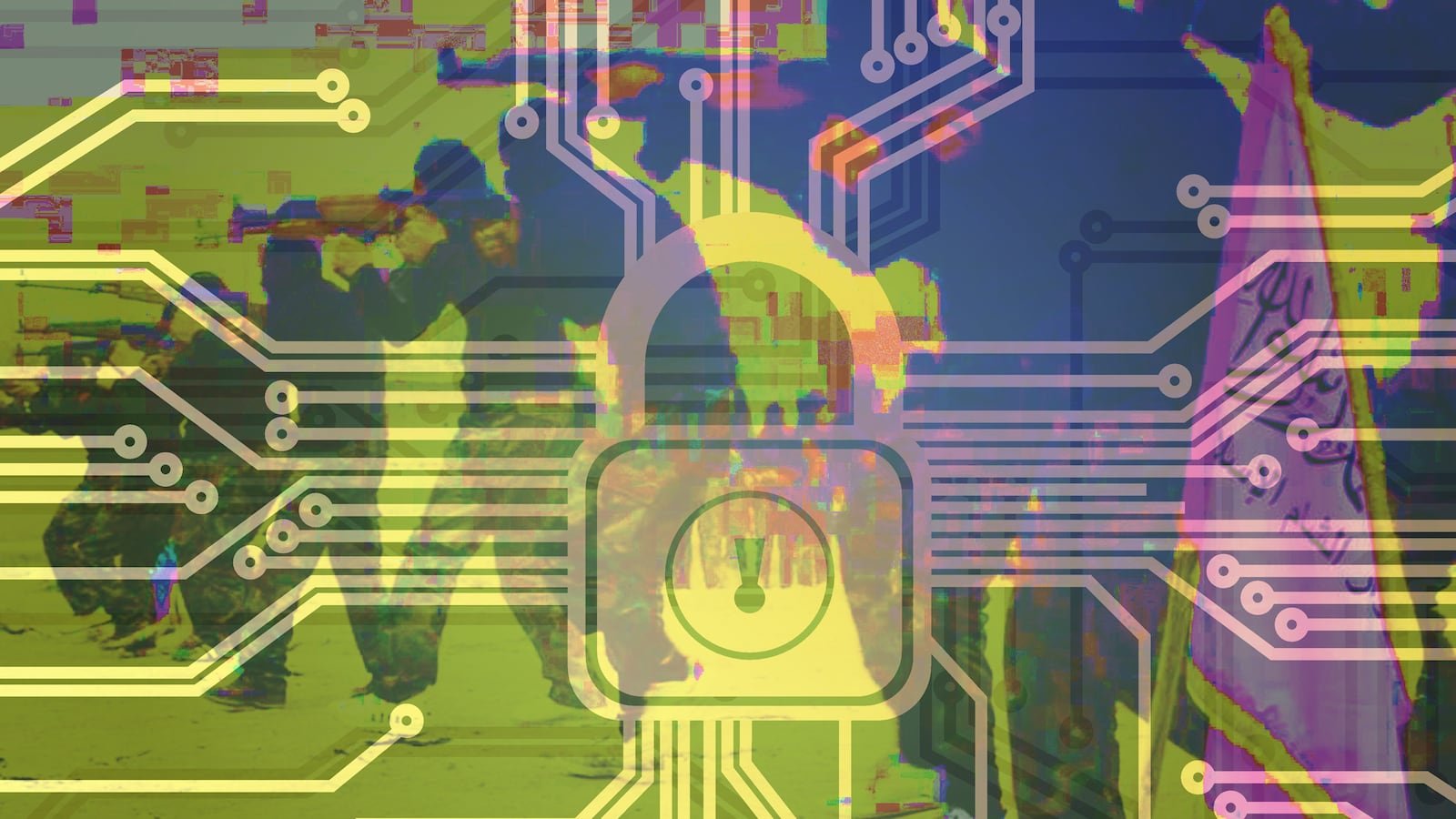The Iraqi government says it’s concerned that militants affiliated with the Islamic State of Iraq and al-Sham (ISIS) are using social media as part of their attempted takeover of the country. But when Baghdad decided to partially block the Internet in Iraq, ISIS’ sites were left untouched.
According to a report provided to The Daily Beast from the Citizen Lab at the University of Toronto, a host of websites supportive of ISIS remained accessible during Iraq’s selective Internet blockade. There are 20 different “unique URLs” that are blocked on three different Iraqi Internet Service Providers, including Twitter, Facebook, Psiphon (a circumvention site for communication) and mobile messaging apps like WhatsApp and Viber.
The Internet restrictions began after ISIS seized the cities of Mosul and Tikrit, in an attempt to limit the Jihadist group’s ability to communicate and mobilize. In some predominately ISIS-controlled provinces, there were attempts to block internet access entirely. Yet according to the Iraqi Ministry of Communication, the government “temporarily stopped some of the Apps” and internet service wasn’t directly affected. There is precedence for restricting mobile communication, as ISIS has used an exclusive twitter app called the Dawn of Glad Tidings to send tweets through the Android phones of individual group members.
The findings of the report suggest that early Internet blocking in Iraq was done by DNS tampering, essentially disrupting the process by which domain names are transferred into Internet Protocol (IP) addresses. “If the information in DNS records is tampered with, domain names can resolve to an incorrect IP address, which can lead visitors to a blockpage,” the report says. The researchers tested a total of 1,358 URLs to find suspicious DNS results. This is the page they saw that indicates a block from the Iraqi government:

But when it came to the seven identified sites with ISIS affiliations, the Citizen Lab found no barriers to entry.
“We also tested the accessibility of 7 URLs of sites which are affiliated with or supportive of ISIS,” the report says. “We did not find any evidence, through both DNS lookups and proxy testing, that any of these URLs are blocked.”
ISIS members could be using circumvention tools to hide their Internet activity though, as the use of both Psiphon (an Android app) and Tor, an internet anonymization tool, have drastically increased in June.
“The fact that Iraq is not blocking forums with explicit ISIS content (that we tested) is intriguing and is not consistent with the government's rhetoric,” senior researcher Helmi Noman told the Daily Beast. “It could be because the government is still experimenting with the filtering regime. It could also be because the government is more concerned about the participation of the wider society in the discourse on the current crisis, hence the focus on blocking of social media.”
While it’s significant that the Iraqi government has taken these steps to at least complicate potential communications within the militant group, experts have already expressed skepticism at the potential of shutting them up completely.
“At this stage, with the addicted usage of Twitter by the jihadists, I’m not sure how it can be stopped,” Rita Katz, the director of the SITE Intelligence Group said earlier this week. Social networks are so permeable that some of ISIS’s information is being leaked out against its own will, as The Daily Beast’s Jacob Siegel reported. In such a dangerous and shifting landscape, hampering the ability of ISIS to funnel information to its members is of vital importance to the safety of the nation. But it seems that success is eluding the Iraqi government at this point in their hasty attempts to get a handle on an exploding crisis.
“Given the volatile situation in the country, it is uncertain how Internet accessibility will be further affected,” the report says.






